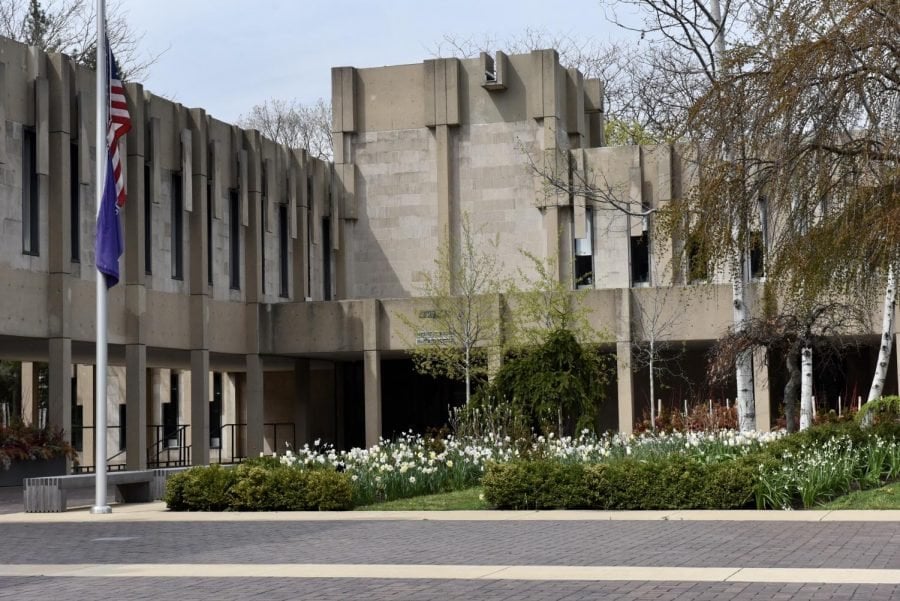Faculty Senate discusses NU’s low admission rates and mental health services
Daily file photo by Catherine Buchaniec
Rebecca Crown Center. Faculty senate discusses potential mental health telehealth services for students and undergraduate admissions rates Wednesday.
April 6, 2022
Northwestern’s Faculty Senate discussed topics related to NU’s acceptance rate and faculty representation in administrative decisions Wednesday night after hearing from the Chair of the Board of Trustees J. Landis Martin.
Faculty Senate President and Molecular Biosciences Prof. Robert Holmgren said NU has a “very low” admission rate and the University would like to continue increasing minority student representation.
Some, like McCormick Prof. Luis Amaral, said the dwindling number of accepted students represents a nationwide “rat race” that encourages under-qualified students to apply, only to be rejected.
“Something that worries me a lot is this fixation on the acceptance rate … and how there is a race to zero,” Amaral said. “We are so happy that this number is going down to zero, and I would just like us to … try to decide as a University if we want to keep misleading kids and having them be disappointed.”
NU’s acceptance rate dipped to a record-low 6.8% for the undergraduate class of 2025. The University is currently ranked ninth in the nation, according to the U.S. News & World Report, in contrast to its 12th-place ranking in 2016.
Neurobiology Prof. Fred Turek said if NU opts out of the “rat race” leading to declining admission rates and no other high-level institution does the same, the University will fall back in its rankings.
“If we stop the rat race, and nobody else does, we’re in trouble,” Turek said.
The senate also discussed faculty needs, ranging from representation on the Board of Trustees to classroom assignments. Earlier in the meeting, Martin informed the senate that a faculty resolution about faculty compensation transparency never reached the Board of Trustees.
Mathematics Prof. Ezra Getzler said classrooms were assigned at the start of Spring Quarter by individuals who live off-campus and are unfamiliar with the University’s layout. For him, this has led to discrepancies between the rooms he is assigned and the ones communicated to his students.
The senate will look into avoiding these administrative catastrophes in the fall, Holmgren said.
At the end of the meeting, senators discussed inadequate funding for student mental health services. In response to a Faculty Senate member’s question on this year’s budget allocation toward student mental health services, Holmgren said the problem is due to staffing shortages.
Medill Prof. Kalyani Chadha added that mental health telehealth services have become widespread at the University of Chicago and are effective at solving a mental health problem that is endemic across college campuses.
In response, Feinberg Prof. Carol Schmidt said NU’s current contract with Humana, a Medicare Advantage organization, will end September, and a replacement is in the works.
“The telehealth easy accessibility … is being addressed in finding a new provider,” Schmidt said. “I’ve been really impressed so far with HR and their diligence on finding a new provider that is going to meet those needs.”
Email: [email protected]
Twitter: @swarthout_iris
Related Stories:
— NU’s Community Safety Advisory Board presents on implemented changes at Faculty Senate meeting
— Faculty Senate addresses staff hiring, retention issues and fiscal year surplus at Wednesday meeting


